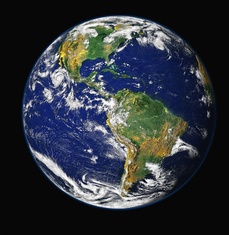
2045 Factbook #1. Afghanistan-Armenia
Last updated: Saturday October 7th, 2023
Report this blog
A few words about this blog.
Most likely, you don't know about 2045. This is an alternate history (or the future?) being developed jointly by alternative history 2052 (these two alternate histories do not overlap, although they may be).
Despite the rather long absence of KilwaAfarCheese (it seems, due to the new job) and, accordingly, the temporary, hopefully, termination of collaboration, I have been writing blogs alone for a relatively long time.
2045 is a working title, but I haven't found a more suitable name yet. The story concerns a small interval of 2024-2045, so there are no strong changes in the world. All events unfold during the Second Cold War — already official, and there is a clash of not two ideologies, but two world orders — the globalist monopolar and the anti-globalist multipolar. At the same time, in other spheres of life, the world, on the contrary, is gradually becoming more stable, and the population is becoming richer
Together with a blog dedicated to the events of the Second Cold War, I decided to write an Overview blog — a kind of "handbook" that tells information about countries, organizations, territories and policies, about what changes they have undergone.
Together with a blog dedicated to the events of the Second Cold War, I decided to write an Overview blog — a kind of "handbook" that tells information about countries, organizations, territories and policies, about what changes they have undergone.
Abkhazia
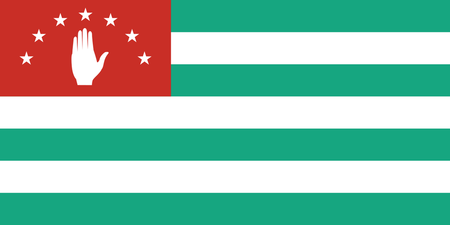
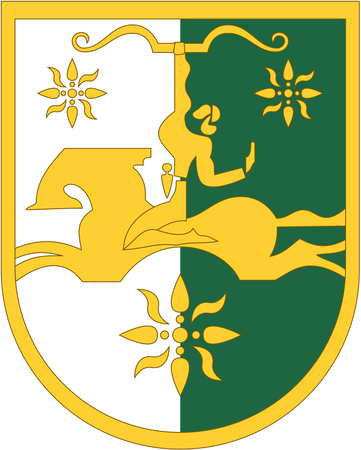
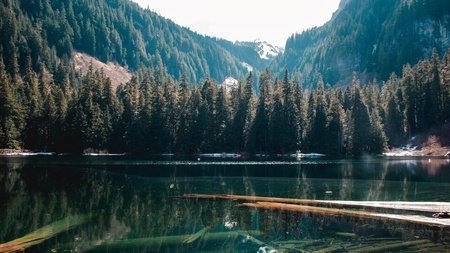
Official name: Republic of Abkhazia
Capital: Sukhum
State system: presidential republic
Head of Government: President
Party ideology: Leftist populist
Population: 543,911
Religion: Secular state
Official language: Abkhaz, Russian
Currency: Abkhazian Ruble
GDP (nominal): $30 billion (151st)
GDP per capita (nominal): $55,156 (91st place)
HDI: 0.837 (high)
Economic development: developing countries (upper-middle)
Life expectancy: 78.1
Main organizations: UEDP, CSTO, SCO
Military personnel: 3,000
Environmental index: 88.20 (very high)
Nuclear weapons: ✘
Space program: ✘
Capital punishment: ✘
Same-sex relationships: ✘
Multiparty relations: ✓
Abortions: ✓
Euthanasia: ✘
Despite the defeat in the First Georgian War, Abkhazia became a member of the UN and received recognition from 190 states. Abkhazia has become one of the most stable countries in Western Asia.
Domestic policy
Abkhazia is a hybrid regime. Despite the rather soft policy of the NP towards citizens, the government of Abkhazia demonstrates loyalty to Russia. Opposition parties, despite the absence of open persecution, cannot gain strength, and anti-Russian figures are placed under arrest.
Abkhazia encourages medium and small businesses of citizens, especially hotel and restaurant activities. Abkhazia provides many benefits (24% goes to social policy), but they are small due to budget constraints.
The army of Abkhazia is weak and cannot resist even criminal groups — Abkhazia relies on Russia in all matters of defense.
Foreign policy
Abkhazia largely coordinates its foreign policy with Russia. Many experts consider it a satellite of Russia. Russia is the main economic partner and is actually responsible for the defense of Abkhazia, tourists from Russia are the country's main source of income. Turkey, the second largest investor in Abkhazia's economy, is seen as Abkhazia's second ally. Very warm relations are maintained with South Ossetia and the CIS countries.
Despite the support of all Russian initiatives, pragmatic relations are maintained with the EU and NATO countries; the EU has recently started investing in the tourism infrastructure of Abkhazia.
Relations with Georgia are extremely tense. Abkhazia, together with Turkey and South Ossetia, have repeatedly supported the complete annexation of Batumi by Turkey.
Economy
The economy of Abkhazia is characterized by an above-average income. The majority of the population (69%) is directly or indirectly employed in the tourism industry. In addition, Abkhazia produces fruits and vegetables (one of the leading countries in the cultivation of tangerines and lemons), medicines, sweets, confectionery and climbing equipment.
Main exporters to Abkhazia:
1. Russia (45%)
2. Turkey (21%)
3. Azerbaijan (5%)
4. China (4%)
5. Iran (3%)
The main importers from Abkhazia:
1. Russia (68%)
2. Turkey (6%)
3. Georgia (4%)
4. Armenia (4%)
5. Azerbaijan (2%)
Tourism and ecology
Abkhazia is striving to regain its glory as the Main resort of the Soviet Union, at the same time reaching the level of world resorts. In 2045, 2,500,000 tourists visited the country, which is 5 times the population of Abkhazia. The main breakthrough was made after joining the UEDP. Abkhazia attracts investors from Turkey and construction companies from Russia with experience in organizing resorts. Abkhazia is distinguished by low prices, unique nature, but at the same time relatively high-quality service. Many Abkhazians are trained in the best hotels in Turkey and Russia. Tourists are attracted by the recreation of the "sanatorium" type, colorful cuisine and nature. Despite this, tourists may be repelled by laziness and the thirst for profit of the local population, as well as not fully organized infrastructure.
The nature of Abkhazia in the north is quite well preserved. A significant part of the country is a protected area. Deforestation in Abkhazia is not a problem, although poaching is partially. Large fines were imposed for causing harm to nature. Abkhazia is likely to become a carbon-neutral country by 2052.
Afghanistan
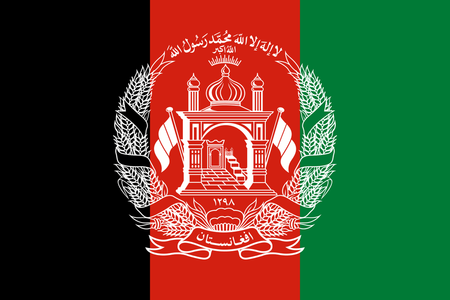
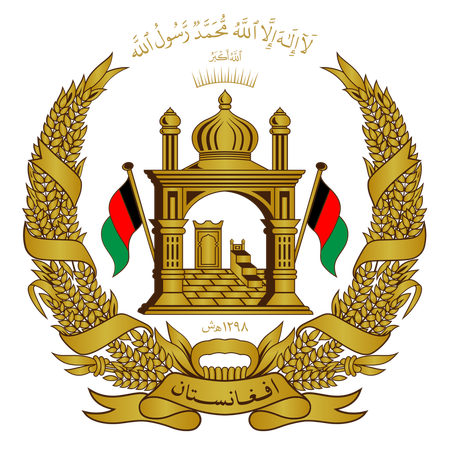
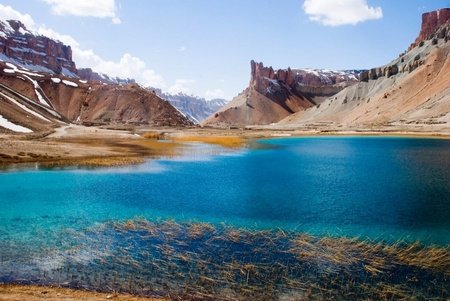
Official name: Republic of Afghanistan
Capital: Kabul
State system: presidential republic
Head of government: President
Population: 36,185,485
Religion: Secular State
Official languages: Pashto, Dari
Regional languages: Tajik, Uzbek, Balochi, Nuristani, Turkmen, Pashai
Currency: Afghan afghani
GDP(nominal): $1,961 billion (45th)
GDP per capita (nominal): $54,193 (94th)
HDI: 0.791 (high)
Economic development: developing (upper-middle)
Life expectancy: 74,0 yrs
Major organizations: CSTO, SCO, OIC
Military personnel: 188,000
Enviromental Index: 72,93 (high)
Nuclear weapon: ✘
Space program: ✘
Capital punishment: ✓
Same-sex relationship: ✘
Multiparty relations: ✓
Abortions: ✓
Euthanasia: ✘
Afghanistan has made a major breakthrough in human rights since the end of the Civil War in 2036. Women became equal in rights with men, compulsory secondary education, medical care, and religious freedom were introduced. Despite this, the secularist government has to take into account the conservative forces of Afghan society, while gradually but decisively weakening their influence.
Domestic policy
Afghanistan is an authoritarian state with a lot of state interference in people's personal lives because of protection from the terrorist threat and the fight against drug trafficking. Afghanistan has large armed forces trained primarily for border protection. Most of the army is armed by Russia, as well as India. It has no fleet.
Thanks to well-trained security services, Afghanistan has become a safe country. Despite this, tourists are still not recommended to visit remote areas.
Foreign policy
Afghanistan maintains diplomatic relations with most UN member states, not recognizing only Israel. Russia is considered the main ally — the main sponsor of the Afghan government and army, as well as the main exporter and the second largest importer. Warm relations are also maintained with India, which is the main assistant in the anti—terrorist struggle. Close relations are maintained with the countries of Central Asia, especially with Tajikistan and Uzbekistan. Other strategic partners are Iran, China, East Poland, Syria, Egypt and Iraq.
Afghanistan has tense relations with NATO countries, even after the "thaw" since 2040. Afghanistan regularly accuses NATO countries of supporting terrorism and promotes its position in many international organizations. The main enemy of Afghanistan is Pakistan, from which Afghanistan has built a "Cordon of Protection" — a well-protected system of fortifications. During 2036-2038, Pakistan and Afghanistan conducted about 20 operations on each other's territories, and to this day, Pakistan seeks to destabilize the situation in Afghanistan.
Economy
Afghanistan is an agro—industrial country with an upper-middle income. The economy of Afghanistan is focused on domestic consumption. The main production: fabrics, electric power, resources, food industry, chemical industry, motorcycles and mopeds.
Major Exporters to Afghanistan:
1. Russia (28%)
2. India (19%)
3. Iran (11%)
4. China (9%)
5. Kyrgyzstan (4%)
The first five countries account for more than 80% of Afghanistan's imports.
Importing countries from Afghanistan:
1. Russia (21%)
2. India (19%)
3. Tajikistan (7%)
4. Uzbekistan (5%)
5. Ukraine (4%)
Tourism and Ecology
In 2045, 3,100,000 tourists visited Afghanistan, more than 1 million of them from Tajikistan and Iran.
Despite the rapid recovery after the war and industrialization, Afghanistan has not yet managed to gain attractiveness as a tourist destination. This is especially hindered by the echoes of the war and stereotypes that have taken root over the years. Thanks to the government, Afghanistan has become a major transit hub for flights. Visa refusals are rare, but security and passport control are strict.
Tourists go to Afghanistan for the natural beauty and local cultural flavor. Afghanistan is trying to repeat the success of Kyrgyzstan in mountain resorts, but it is too early to judge the success.
Due to the goal of rapid industrialization of the country, the Afghan government has pushed environmental issues into the background. Despite this, thanks to subsidies from Russia, China and WWF, the factories of Afghanistan were equipped with a cleaning system. After the reorientation to improve the quality of life, more than 20 nature reserves were opened. To combat poaching, a separate protection corps of the Lesser Brothers was created. The successes in the fight are so large that the Corps is hired to solve the fight against poaching in Africa and America.
Albania
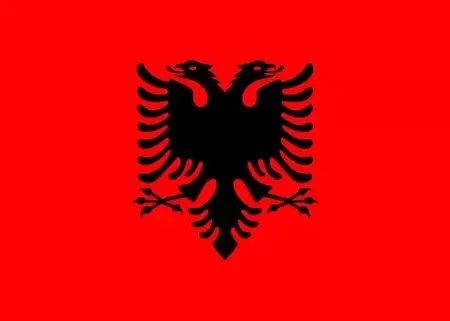
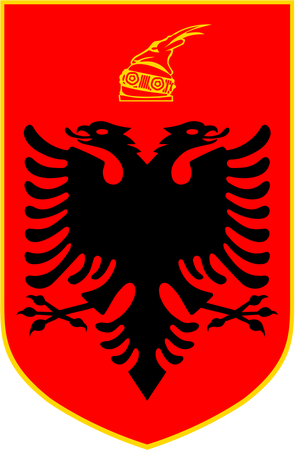
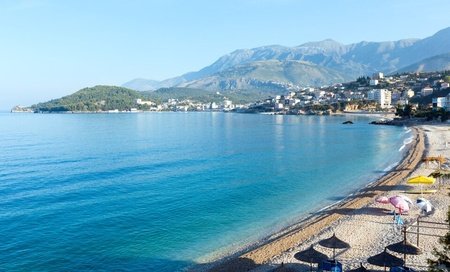
Official name: Republic of Albania
Capital: TiranaState system: parliament republic
Head of government: Prime Minister
Party ideology: Right nationalist
Population: 2,138,275
Religion: de jure — Secular state, de facto — Islam
Official language: Albanian
Currency: Albanian lek
GDP (nominal): $39 bil (142nd)
GDP per capita (nominal): $18,239 (146th)
HDI: 0.681 (medium)
HDI (with inequality): 0.652 (medium)
Economic development: developing (low-middle)
Major organizations: EU, NATO, OIC
Military personnel: 18,000
Enviromental Index: 86,35 (very high)
Nuclear weapon: ✘
Space program: ✘
Capital punishment: ✓
Same-sex relationship: ✘
Multiparty relations: ✓
Abortions: ✘
Euthanasia: ✘
During the 2030s, Albania experienced a severe crisis, becoming one of the most backward and poor countries in Europe. Power is concentrated in the hands of radical nationalists who involved Albania in a military adventure in 2033 and forced neighboring countries to impose a blockade against it.
Domestic policy
Albania is a tough authoritarian state. After the defeat in the Balkan War, Albanian nationalists began repressions against "traitors": Greeks, Serbs, Christians, Catholics, leftists, liberals. The apotheosis of repression was the massacre in Peshkopi with the destruction of Serbian prisoners and anti-war activists. Despite this, after moderate forces led by Pavli Fatmir came to power, Albania loosened its grip and switched to less radical methods.
Politics is determined by conservative sentiments, national sentiments and chauvinism are strong.
Despite strong militarism and large military expenditures, Albania has one of the weakest armies in Europe. Poverty, as well as entry into the Schengen area, has created a migration crisis, many young Albanians are leaving for much more developed countries.
Foreign policy
Due to a long aggressive policy and active participation in the Balkan War, Albania earned a bad name on the world stage. From 2034 to 2039 Albania was blockaded by Greece, Italy, Serbia, Montenegro and Macedonia.
The main ally is Italy, which, despite the blockade, has become Albania's main economic partner and investor. In military terms, Albania's main ally is the United States, which is considered the main US foothold in the Balkans. Traditionally, Albania voices and promotes the most extreme decisions of the West at the UN.
Albania has the most difficult relations with the dictatorship in Serbia. The countries constantly accuse each other of supporting terrorism, while Albania still recognizes Kosovo as an independent state. Serbia remained the only country that did not lift the blockade from Albania. Strained relations remain with Russia, Greece, Macedonia, Montenegro and Israel.
Economy
The above factors had a negative impact on the economy of Albania. Albania's economy is focused on tourism. The tourist infrastructure is developed, but despite this, Albania is inferior in popularity to other Adriatic resorts. Ethnic Albanians, thanks to the government's program, found their land plots, which allowed them to open small businesses. The elimination of tensions in relations with other countries helped to overcome the crisis by 2042, and by 2050 Albania will already be included in the list of countries with upper-middle income.
Other income items: oil, agriculture, tobacco, clothing
Major exporters to Albania:
1. Italy (24%)
2. Germany (9%)
3. Spain (5%)
4. United States (4%)
5. France (4%)
Major importers from Albania:
1. Italy (44%)
2. Spain (8%)
3. Slovenia (6%)
4. Greece (5%)
5. Germany (3%)
Tourism and Ecology
Albania is quite a popular destination for tourists. In 2045, more than 2,000,000 people visited Albania, mostly from EU countries. The country has developed a tourist infrastructure that has been preserved even after the hostilities. Closeness and strict orders in the state are invisible to tourists. Despite this, there is hostility towards ethnic Greeks and southern Slavs. The largest resorts are Vlorë and Sarandë.
Caring for the environment and caring for nature has become one of the foundations of nationalist politics. Herds of fallow deer and red deer were imported to restore the exterminated fauna, but this did not end with positive results. 97% of Albania's electricity is produced from renewable sources, ranking fourth in these indicators after Iceland, Estonia and Liechtenstein.
Algeria
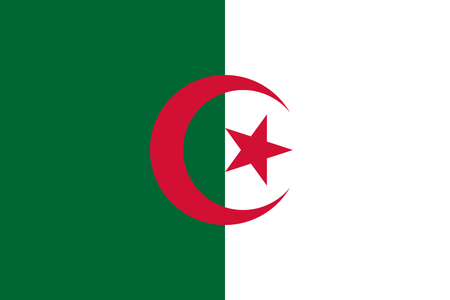
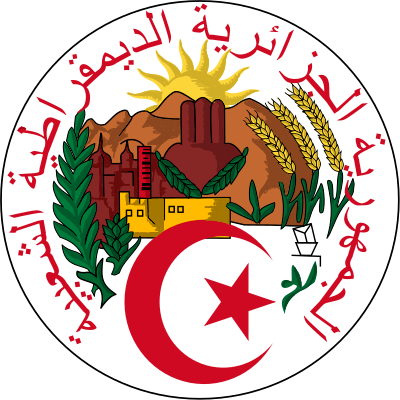
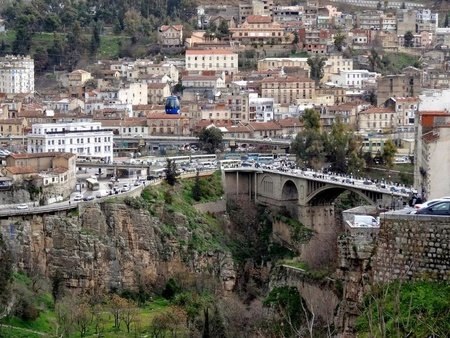
Official name: People's Democratic Republic of Algeria
Capital: AlgiersState system: presidential republic
Head of government: President
Party ideology: Social Democratic
Population: 46,586,537
Religion: Secular state
Official language: Arabic, Berber, (in business French)
Currency: Algerian dinar
GDP (nominal): $3,500 bil (26th)
GDP per capita (nominal): $75,129 (58th)
HDI: 0.850 (very high)
Economic development: developing (upper-middle)
Life expectancy: 79,9 yrs
Major organizations: African Union, Arab League, OPEC
Military personnel: 489,000
Enviromental Index: 67,57 (middle)
Nuclear weapon: ✘
Space program: ✘
Capital punishment: ✓
Same-sex relationship: ✘
Multiparty relations: ✘ (de facto)
Abortions: ✘
Euthanasia: ✘
Algeria became one of the few States that avoided participation in the Second Cold War, pursuing a policy of neutrality. Despite this, Algeria has become the leading state in Africa and a major player on the world stage.
Domestic Policy
Algeria is a dictatorship with strict laws for officials. The fight against corruption and the creation of an effective state apparatus has brought Algeria into the ranks of "Prisons of Officialdom", along with Afghanistan, Belarus, Kyrgyzstan, Ukraine, Mexico, Russia and China. Any suspicious actions of officials or attempts by businesses to influence the state are severely suppressed. Despite this, Algeria is a favorable country for entrepreneurship. As a socialist state, Algeria provides social benefits to the population, such as compulsory education and free medical care. Algeria's standard of living is ahead of most countries in Africa and the Middle East and is comparable to Italy or Turkey.
The Algerian army is one of the most powerful armies in Africa and the world. Algeria is striving to create its own military-industrial complex, although most of the weapons are purchased from China and Russia.
Foreign Policy
Algeria consistently avoids participation in both political and military conflicts, trying to pursue a friendly policy with other countries. Despite this, Algeria often helps African countries in anti-terrorist operations and conducts exercises with the Maghreb and CSTO countries.
Algeria maintains good relations with the Maghreb countries, especially Egypt and Tunisia. Algeria signed resonant agreements with Morocco in 2026 to resolve the conflict in Western Sahara, ending a long feud that gradually turned into good-neighborly relations. Algeria also maintains good relations with sub-Saharan Africa and the secular States of the Middle East (Syria, Iraq and Lebanon). Close relations are also with economic powers — Russia, China and Spain, and unwittingly for a while becoming a key ally of Spain in the trade war with Germany.
Algeria has openly hostile relations only with Saudi Arabia and Pakistan.
Economy
Algeria is the industrial leader of Africa. The country is the first producer of petroleum products and the second largest producer of engineering products in Africa, after Egypt. The underdeveloped military-industrial complex is still in demand among the countries of West Africa. Algeria has developed tourism, agricultural and agro-industrial complex. Algiers is the main business center of North Africa, overtaking even Cairo and Casablanca.
Main exporters to Algeria:
1. Spain (14%)
2. China (9%)
3. Russia (7%)
4. Morocco (6%)
5. South Africa (5%)
Main importers from Algeria:
1. China (19%)
2. Spain (17%)
3. Egypt (9%)
4. Morocco (3%)
5. Turkey (3%)
Tourism and Ecology
Algeria is becoming increasingly popular with tourists. The combination of Arabic and European culture makes the country unique. Although Algeria still lags behind in popularity among other North African countries — Morocco, Tunisia and Egypt. More than 9,900,000 tourists visited the country, which is 12% of the total Maghreb tourist flow. Visa requirements have been significantly relaxed, but obtaining a visa remains tedious for visa countries.
Algeria does not set the protection of nature and the fight against climate as one of the main goals, but fulfills all its obligations. Algeria is extremely strict about the protection of nature reserves, previously often requesting the Protection Corps of the Lesser Brothers to fight poachers. Special attention is paid to the protection of the Atlas Mountains. Algeria is skeptical about renewable energy sources, but still practices its use.
Andorra
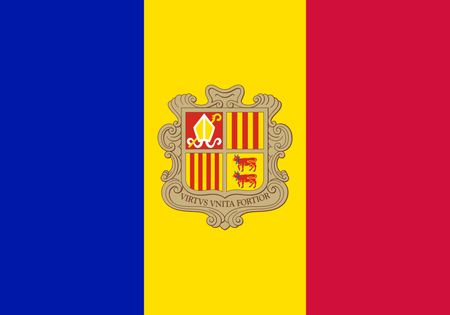
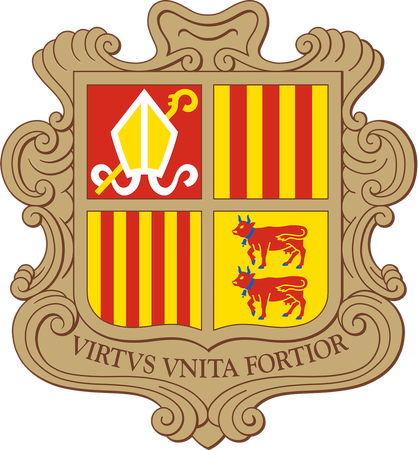
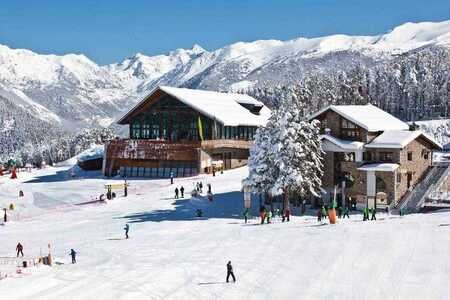
Official name: Principality of Andorra
Capital: Andorra la VellaState system: Constitutional monarchy
Head of state: Prince
Head of government: Prime Minister
Party ideology: LiberalistPopulation: 66,672
Religion: Secular stateOfficial language: Catalan, French, Spanish
Currency: Euro
GDP (nominal): $5 bil (177th)
GDP per capita (nominal): $74,993 (59th)
HDI: 0.885 (very high)
Economic development: developed
Life expectancy: 84,0 yrs
Military personnel: none
Enviromental Index: 98,92 (very high)
Nuclear weapon: ✘
Space program: ✘Capital punishment: ✘
Same-sex relationship: ✓
Same-sex marriage: ✓
Multiparty relations: ✓
Abortions: ✓
Euthanasia: ✘
Andorra is one of the few countries in Europe (along with Russia, Spain, Norway and Scotland) leading an independent policy. Spain's withdrawal from the EU helped to get rid of Andorra's dependence on the aforementioned union. Andorra remains one of the most developed and prosperous countries in the world.
Domestic Policy
Andorra is a democratic country. Citizens have broad freedoms, the standard of living of the population is very high, despite the relatively low HDI.
Due to its microstate status and disinterest of superpowers, Andorra is a very stable country. Since 2025, there have been no protests, stagnations, recessions or crises in the country. Andorra has no army, only a small police force. There is practically no crime in the country — for twenty years there have not even been robberies in the country.
Foreign Policy
Andorra has declared military and political neutrality. Country has an independent policy, maneuvering between Spain and France with the EU. Friendly relations with neighbors are beneficial to Andorra, but despite this, Spain is more often supported.
Andorra maintains good relations with world powers. Andorra carries out many projects with the United States and Russia, develops friendliness with India and China, although the government and the population have more trusting and close relations with the United States.
Economy
Andorra is a developed post—industrial country with a high income. Andorran goods and services are among the highest quality in the world. Andorra is distinguished by world-class ski resorts, cheese-making. Exports are small and are supplied only to two countries: France (59%) and Spain (41%), imports are mainly from Spain (28%).
Tourism and Ecology
Andorra traditionally remains one of the most popular ski resorts. Especially popularity increased after Spain left the EU, when residents of the former Soviet Union and China gained the opportunity to enter Andorra visa-free.
Like all Western European countries, Andorra monitors the environmental situation. The nature of Andorra is well preserved, flora and fauna are not in danger.
Angola
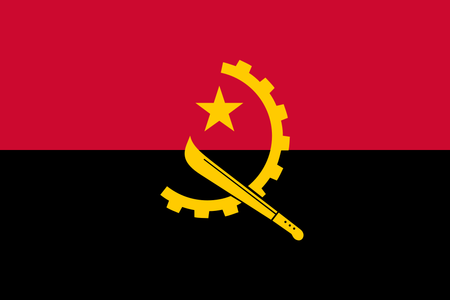
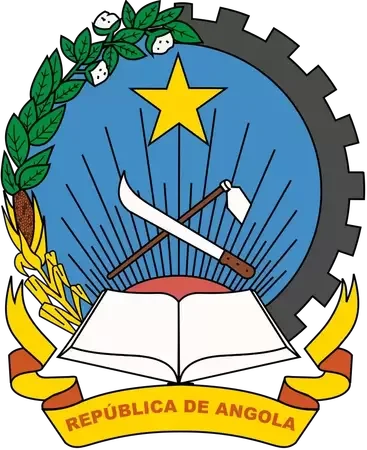
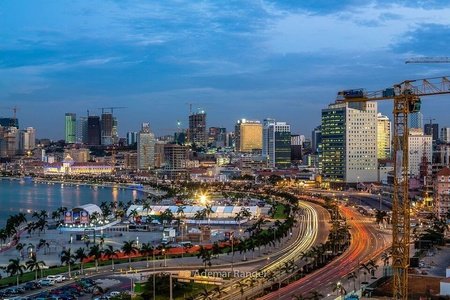
Official name: Republic of Angola
Capital: LuandaState system: Presidential republic (de facto — dictatorship)
Head of government: President
Party ideology: Leftist socialist
Population: 37,225,609
Religion: Secular stateOfficial language: Portuguese
Currency: Angolan Kwanza
GDP (nominal): $1,667 bil (54th)
GDP per capita (nominal): $44,781 (113th)
HDI: 0.730 (high)
Economic development: developing (upper-middle)
Life expectancy: 69,0 yrs
Major organizations: African Union, OPEC, SoA
Military personnel: 101,000Enviromental Index: 74,62 (high)
Nuclear weapon: ✘Space program: ✘
Capital punishment: ✓
Same-sex relationship: ✘
Multiparty relations: ✘ (de facto)
Abortions: ✓
Euthanasia: ✘
Angola is part of the "Breakthrough Crescent", having made a big leap in development. The country is one of the regional leaders, Luanda is considered an expensive and attractive city for business. Angola has great ambitions for leadership in Africa, striving to overtake South Africa.
Domestic Policy
Angola is an authoritarian state. Despite this, the style of dictatorship is not similar to other dictatorships in Africa, but rather to the authoritarian regimes of Asia. The ideas of socialism are being revived in the country with the active support of China. Despite this, there is no total control of the population.
As in the rest of Africa, Angola is beginning to reduce the birth rate, focusing on improving the standard of living, education and skills of the population. Due to the higher standard of living, residents of other African countries are moving to Angola, especially Christians from Mozambique who are avoiding Islamization. At the same time, Angolans themselves emigrate to a more prosperous Portugal, although the government gives payments to repatriates to their homeland. There is inequality in the country: residents of Luanda, Benguela and Cabinda live at the level of developed countries, while residents of remote areas are mainly at the level of the poorest countries in Africa.
Foreign Policy
Angola is the leader of Africa militarily, pursuing a clear anti-American policy. After the American invasion of Burundi, Zimbabwe and Somalia in 2030, Angola, together with Egypt, initiated the creation of the "Shield of Africa" (SoA) — a military organization against Western expansion. Angola has strained relations with Western countries, except Portugal and Spain. Angola regularly conducts SoA exercises in Cabinda, especially often to capture the coastline of the Democratic Republic of the Congo, which is why the DRC accuses it of planning an invasion and coup..
The main allies are the member countries of the SoA bloc, especially the Republic of the Congo, Egypt, Tanzania and Ghana, as well as Russia and the socialist states, especially China.
Economy
Angola's economy is one of the largest in Africa. For a long time, the economy was based on oil, but with the opening in 2027 of complexes for the production of plastics and polymers, Angola switched to the production of more complex products from these materials. Angola's products are uncompetitive compared to EU, UEDP or US products, but are still popular in African countries. Luanda is one of the main economic centers of Africa, many headquarters of African firms and branches of global corporations are located in Luanda. The main articles of the export: plastics, chemical products, polymer materials, coatings, oil, petroleum products.
Main exporters to Angola:
1. China (15%)
2. Portugal (14%)
3. Russia (10%)
4. Brazil (9%)
5. South Africa (7%)
Main importers from Angola:
1. China (21%)
2. Portugal (16%)
3. Namibia (7%)
4. United States (5%)
5. Tanzania (5%)
Tourism and Ecology
Angola is not a popular tourist destination in the world, although business trips to Angola are often made in Africa. Luanda attracts primarily as a business and economic center.
Angola does not monitor the environmental situation, regularly protesting against alternative energy sources. Due to the developed chemical industry, the environment suffers. There is a problem of poaching, although Angola has a large anti-poaching department. Angola's entry into the Convention for the Protection of Tropical Forests" has stopped active deforestation.
Antigua and Barbuda
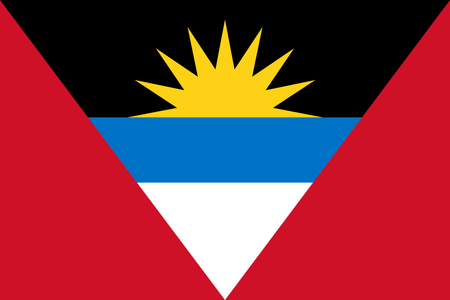
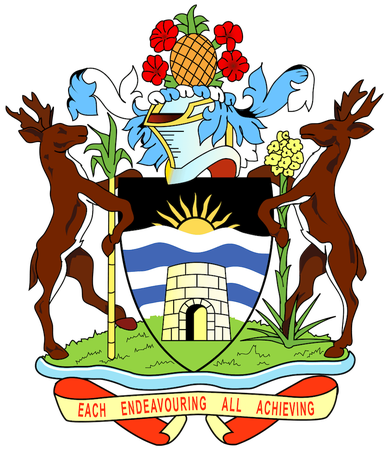
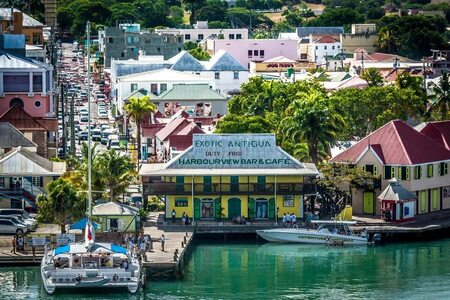
Official name: Antigua and Barbuda
Capital: St John'sState system: Parliamentary monarchy
Head of state: King
Head of government: Prime Minister
Party ideology: Leftist (Labour)
Population: 91,927
Religion: Secular stateOfficial language: English
Currency: East Caribbean dollar
GDP (nominal): $6 bil (174th)
GDP per capita (nominal): $65,269 (79th)
HDI: 0.837 (high)
Economic development: developing (upper-middle)
Life expectancy: 79,5 yrs
Major organizations: CARICOM, RSS, Commonwealth of Nations
Military personnel: 1,000Enviromental Index: 80,76 (high)
Nuclear weapon: ✘Space program: ✘
Capital punishment: ✘
Same-sex relationship: ✓
Same-sex marriage: ✘
Multiparty relations: ✓
Abortions: ✓
Euthanasia: ✘
Antigua and Barbuda has retained its status as a little-known small Caribbean state. The state did not develop at a rapid pace, but it also did not experience crises and did not get into major confrontations.
Domestic Policy
Antigua and Barbuda is a democratic State. Due to the disinterest of major powers and stability, freedom of speech and the media flourishes in the country. Despite this, the population depends on the elements and suffers from income inequality, although the government settles the problems.
The army of Antigua and Barbuda is weak and is intended as an anti-terrorist and political service. The country actively cooperates with other Caribbean countries militarily, conducts operations to combat smuggling and piracy.
Foreign Policy
Antigua and Barbuda does not play a big role on the world stage. The country cooperates closely with other Caribbean countries. Antigua and Barbuda is the realm of the Commonwealth, so the head is King William V of Britain and has close ties with the UK. Antigua and Barbuda depends on the United States, so it maintains good relations with them. Antigua and Barbuda is in a confrontation with Haiti due to accusations of piracy by the former.
Economy
Antigua and Barbuda is an upper-middle income economy. Due to the high rates of development of the world economy and concurrently low growth rates of the national economy, Antigua dropped out of the list of countries with high income economy. The country depends on tourism (76% of income), primarily from the USA and Mexico. Antigua and Barbuda actively attracts investors and provides residence permits to foreigners. The country depends on imports, primarily from the United States and Cuba (primaly medicaments).
Main exporters to Antigua and Barbuda:
United States (43%)
Cuba (22%)
Brazil (9%)
Mexico (4%)
Canada (3%)
Main importers from Antigua and Barbuda:
Cameroon (7%)
United States (5%)
United Kingdom (3%)
Barbados (2%)
Mexico (2%)
Tourism and Ecology
As a tourism-oriented state, Antigua and Barbuda takes proper care of nature. Activities such as cleaning and checking beaches and nature parks are carried out regularly. Antigua and Barbuda is a member of the "Reefs in Color" movement, although it does not show major initiatives.
Antigua and Barbuda is a popular tourist destination, especially among residents of the United States, more than 330,000 tourists visited the country in 2045
Argentina
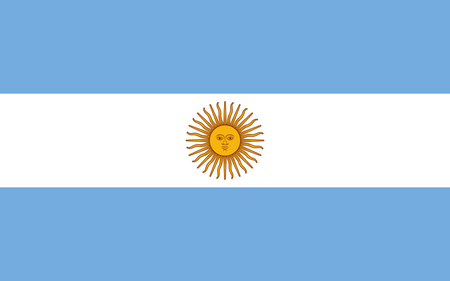
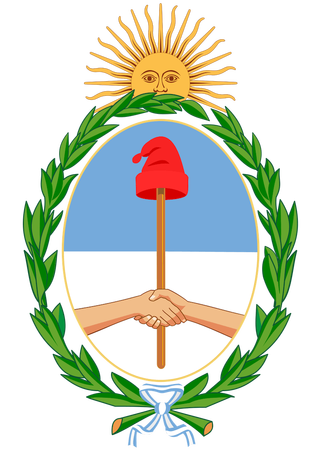
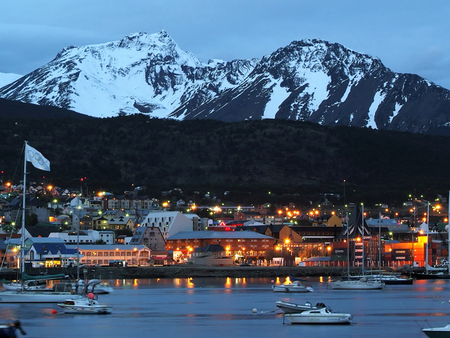
Official name: Argenitne Republic
Capital: Buenos AiresState system: Presidential republic
Head of government: President
Party ideology: Leftist
Population: 47,727,785
Religion: Secular state
Official language: Spanish
Currency: Argentine peso
GDP (nominal): $3,443 bil (28th)
GDP per capita (nominal): $72,902 (67th)
HDI: 0.876 (very high)
Economic development: developedLife expectancy: 80,8 yrs
Major organizations: MERCOSUR, OECDMilitary personnel: 167,000
Enviromental Index: 81,23 (high)Nuclear weapon: ✘
Space program: ✘Capital punishment: ✘
Same-sex relationship: ✓Same-sex marriage: ✓
Multiparty relations: ✓Abortions: ✓
Euthanasia: ✘
Argentina has experienced major economic growth, finally consolidating its leadership in the Americas and increasing its global influence, becoming one of the developed economies. Despite this, Argentina has problems due to irrational spending and problem solving.
Domestic policy
Argentina is one of the most free and democratic States in the Americas. The population has broad freedoms, the state almost does not interfere in the life of the population. According to the EIU rating, Argentina is second only to Costa Rica, Canada, Uruguay and Chile, according to the RCGT rating - only to Canada and Uruguay.
Argentina is one of the most educated countries in South America. All education, including higher education, is free. Moreover, foreigners from a number of countries also have the right to free education in Spanish. Every year 280,000 foreign students come to study in Argentina, primarily from Latin American countries: Peru, Bolivia, Uruguay, Colombia, Venezuela, Ecuador and Guatemala.
The Argentine government encourages immigration, which caused discontent among most of society, which is why Argentina had to put restrictions: a residence permit is issued to no more than 300,000 people a year.
Crime is a big, although almost solved, problem in Argentina. The number of murders per 100,000 people is one of the highest among developed countries — 4.2 people.
Argentina was exposed to the global trend during the unstable years 2028-2038, when most countries were building up their military power. The number of armed troops was especially increased during the Chaco and Falklands crises, although the military buildup did not justify itself, and by 2047 the number of troops was decided, with the exception of the navy.
Foreign policy
Argentina is considered a major world power, although not the most influential. Among its own kind, Argentina pursues a rather soft and peaceful policy: Argentina has not entered into any armed conflict, although it has participated in several international crises.
Argentina has a strong position on isolating the South American continent from the intervention of the main players of the Second Cold War and military clashes, which it succeeds in doing, using the concept of "Family".
Argentina has the closest relations with other developed countries of South America — Chile and Uruguay, with which it integrates in many areas, and primarily in the economic and high technology sectors. Various joint programs of Argentina, Chile and Uruguay seek to consolidate the economic power and status of the highly developed economies of these countries.
Despite this, Brazil is strategically the most important partner for Argentina. The Governments of these countries consider their concept of a "South American family" in relation to the continent, where Brazil and Argentina are compared to "husband and wife" and "dad and mom", respectively. According to this concept, Brazil is the protection (that is, provides military protection from foreign forces) and the earner (that is, being the main economic force, bringing money) of the "family", while Argentina is the "housewife" (that is, achieves stability and development within the region and between countries) and the "breadwinner" (being a major agricultural and high-tech power, it provides and develops other South American countries). Despite indulging in the implementation of such a concept, Argentina still sometimes tries to intercept Brazil's leadership on the mainland, although with less potential.
Argentina maintains good relations with other South American countries, according to its concept of being "adult children". Argentina gives great support to them as less developed. Migration to Argentina is popular among residents of Colombia, Peru, Bolivia and Venezuela, many students study at Argentine universities, and specialists are trained in Argentina.
The Chaco War of 2036 caused great indignation in Argentina because of the "undermining of friendship and peace between South American nations" and, first of all, the attempt of major powers to play on the South American field. In protest, Argentina severed diplomatic relations with Bolivia, and for some time relations between the countries were tense, although they quickly normalized.
Relations with Paraguay, on the contrary, strengthened, although Argentina later accused him of "becoming a springboard for the United States to put pressure on South America" and clashed with him until less pro-American forces came to power in 2044.Outside of the South American continent, Argentina maintains good relations with Spain. The aspirations of both countries in the international arena are largely combined, Spain puts first of all on Argentina to realize its goals in the Western Hemisphere, as well as Argentina puts on Spain to realize its goals in Europe. Trade between the two countries is great and is only gaining momentum, and cultural interaction is very high.
The United States is considered a friend and partner for Argentina today, but in the long term the main enemy and threat to its interests. Argentina rarely opposes the United States and never voices claims in public, often calling them "American friends", although friendship with America is actually ostentatious and unconstrained.
Argentina maintains friendly relations with Russia. Argentina and Russia are implementing many joint programs and bold projects. Despite this, relations between the countries were soured during the Chaco War, when Argentina accused Russia of interfering in South America. In the long term, Argentina also does not consider Russia an ally, although it does not consider it a direct threat to its goals.
Argentina has the worst relations with the United Kingdom because of the Falklands crisis caused by Britain's refusal to transfer the Falklands to Argentina. Despite the transfer of the islands, Argentina and UK still oppose and harm each other.
Economy
Argentina is a developed high—income economy, export-oriented. The country is the main producer of high-tech products in South America, such as pharmaceuticals, electronics and information technology, competing in the rank only with Chile. Argentina was able to revive its status as an agricultural power by developing large farms — in terms of production in South America, it is inferior to Brazil in absolute numbers, and in per capita production and exports it occupies a leading position. Argentina is distinguished by the high quality and variety of food products supplied, especially fruits, dairy products and alcohol. Despite this, the status of a developed country has not yet been fixed definitively. The main blow to the country's economy was the holding of the 2038 Winter Olympics in Ushuaia, distinguished by its expensiveness, irrationality, difficulty in logistics, and the high cost of building Olympic objects. For example, the government had to build a new Ushuaia airport to withstand the load of tourists. Such colossal and useless expenses hit the budget and, accordingly, the country's economy, because of which it could lose its developed status, but the economy was able to withstand the onslaught.
The main import items are oil, gas, chips, semiconductors, parts, aviation, weapons.
Main exporters to Argentina:
1. Spain (10%)
2. Brazil (9%)
3. Venezuela (7%)
4. United States (7%)
5. Russia (6%)
Main export items: natural resources, machinery, chemicals, fertilizers, agricultural products, food, combines, alcohol.
Main importers from Argentina:
1. Brazil (9%)
2. Spain (7%)
3. Colombia (5%)
4. Russia (4%)
5. China (4%)
Tourism and ecology
Argentina is a popular tourist destination, Buenos Aires is one of the most visited cities in South America, and according to the votes of 2037 and 2041 it was named the most beautiful city of the New World. In 2045, more than 21 million tourists visited the country.
Argentina has a unique nature: subtropical climate in the north and subantarctic in the south. The biodiversity of Argentina is incredibly great. The Government is trying to solve environmental problems, although at the moment they have not yet been resolved definitively.
Armenia
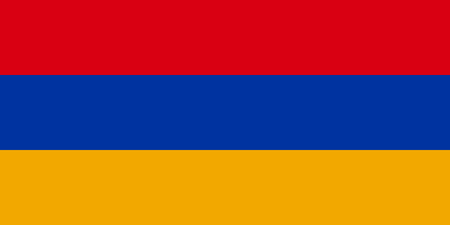
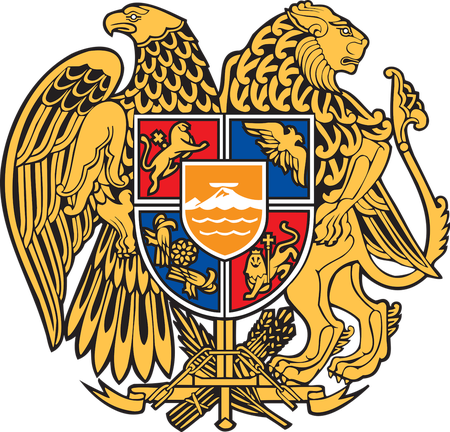
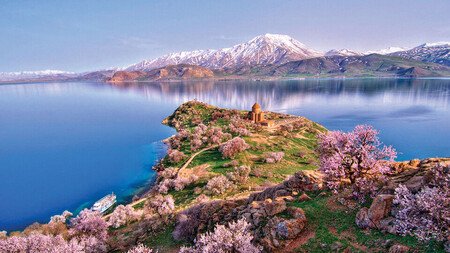
Official name: Republic of Armenia
Capital: YerevanState system: Parliamentary republic
Head of government: Prime Minister
Party ideology: Nationalist
Population: 3,107,520
Religion: Armenian Apostolic ChurchOfficial language: Armenian
Currency: Armenian dram
GDP (nominal): $105 bil (119th)
GDP per capita (nominal): $33,789 (124th)
HDI: 0.751 (high)
Economic development: developing (lower-middle)Life expectancy: 74,1 yrs
Major organizations: UEDP, CSTO, CIS
Military personnel: 44,000
Enviromental Index: 74,73 (high)Nuclear weapon: ✘
Space program: ✘Capital punishment: ✘
Same-sex relationship: ✓Same-sex marriage: ✘
Multiparty relations: ✓Abortions: ✓
Euthanasia: ✘
Despite the fact that Armenia is officially considered a participant in the Cold War II, it has often attracted the attention of the world community with its scandals caused by the "two-chair policy". At the same time, Armenia has not been able to achieve significant success in the economic sphere and in the political arena.
Domestic policy
Armenia is a democratic unitary republic. Among the countries of the former USSR, Armenia is considered the most democratic. At the same time, the government is pursuing an extremely conservative and nationalist policy, giving ethnic Armenians great privileges. Since 2034, there has been a program of repatriation of Armenians to their homeland, but due to a rather unpromising economy, approximately no more than 30,000 have returned. Armenia is a mono—ethnic country, more than 98% are Armenians, and the figure is only growing every year. Representatives of other nationalities are leaving Armenia.
The Armenian army gained strength during the militarization of the CSTO in the 2030s, becoming the most powerful in the Caucasus, but due to the economic crisis in 2037, Armenia reduced spending on the army and military personnel. The level of crime and terrorism in Armenia is relatively low.
Foreign policy
JArmenia is a member of the UEDP political bloc and the CSTO military bloc, but despite the obvious pro—Russian orientation of both, the Armenian government pursues a policy of "two chairs", flirting with Western countries.
Armenia has maintained tense relations with Azerbaijan for a long time.
After the Karabakh Treaty, the conflicts stopped, but distrust in relations between the countries remained; for example, Azerbaijan has repeatedly condemned Armenia's actions in the Balkan War. At the same time, the armies of Armenia and Azerbaijan fought on the same side in the Georgian wars, and the governments implement joint projects within the framework of the UEDP.
Russia and Armenia, after the arrival of the "pro-Western" government in the second, sharply worsened relations. The peak of the enmity was the scandal of 2037, when the Armenian government revealed the fact of Russian support for Serbia in the development of nuclear weapons. In 2036-2039, Armenia was included in the "list of unfriendly countries". After the change of power, relations between the countries improved, but they did not become very warm.
Relations with Turkey are quite bad: Turkey accuses Armenia of "Armenian Zionism", or Araratism. The main reason was the Balkan War, when Armenia occupied the territories of the Aras bank and Mount Ararat of Turkey without declaring war. At the same time, the rhetoric of both countries has recently become less hostile, and the Turkish President even called Armenia an "eastern ally"
The country is extremely friendly to the USA. Armenia has become the only CIS country that has not banned the activities of American NPOs. In the press, Armein is called "the US representative in the UEDP." Armenia also has good relations with the UEDP member countries (especially Greece and Abkhazia), the EU (especially France), Iran, India and Canada.
Economy
Armenia is a developing economy with lower—middle income. The country continues to "deindustrialize", which is why it is very dependent on the service sector. The economy is very weak and destabilized due to the crisis in relations with Russia, which has affected trade. The country has a small budget and depends on loans, but it has some potential.
Armenia suffers from high unemployment — 31% of the able-bodied are unemployed, many Armenians enjoy free entry under the UEDP customs agreement and live and work in Russia, Greece, Kazakhstan and Austria. Migrant transfers make up a significant part of Armenia's income.
Main exporters to Armenia:
1. Russia (19%)
2. China (9%)
3. India (7%)
4. France (4%)
Exports account for about 20% of revenues. Main export items: cast iron, gold, alcohol, ores.
Main importers from Armenia:
1. Russia (10%)
2. China (5%)
3. Ukraine (3%)
4. Kazakhstan (2%)
5. France (2%)
Tourism and ecology
Armenia is an attractive tourist destination, distinguished by its national flavor, rich nature and low prices. In 2045, 1,460,000 people visited the country. At the same time, it is quite difficult for Armenia to compete with other, more popular destinations in the region: Turkey, Abkhazia, Azerbaijan, Iran and the Russian North Caucasus and the Black Sea region.
Armenia is a mountainous country with a rich landscape, diverse flora and fauna of Transcaucasia. Poaching and environmental pollution are a big problem, but problems are being eliminated and solved.

It will be interesting to see how many predictions come true, although hopefully not the wars you mention.
It's not that these are predictions, it's just an unlikely figment of the imagination, which is unlikely to come true due to three unlikely events:
1. China will collapse, but it will not affect other economies
2. Russia and India will not receive damage, but benefit from the collapse of China, starting to expand their influence
3. The United States will have a weak and short-sighted government for the next decade, led by an incompetent president (surprisingly, this came true in real life... in 2020, I couldn't think about it)
And yes, I am very concerned about the great bloodshed in this AF, although, on the contrary, what calms me is that poverty, on the contrary, is going away. I once accidentally realized that 97(!) countries have an HDI higher than 0.800, despite the fact that I changed the formula to a stricter one.
Anyway, glad to read you!